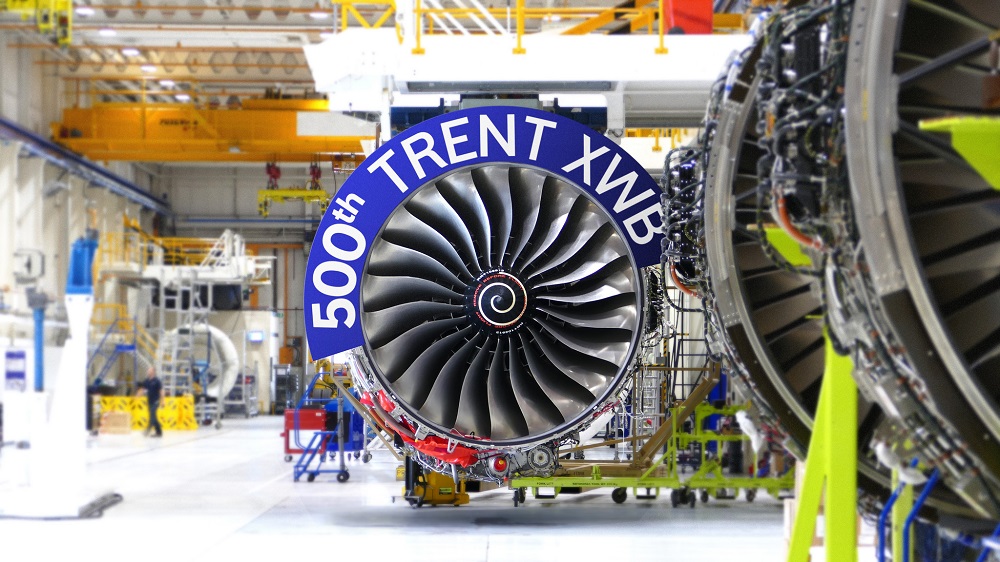A350's Trent XWB engine hits twin milestones
16 July, 2018
3 min read
By joining our newsletter, you agree to our Privacy Policy


As Rolls-Royce continues to grapple with Trent 1000 problems affecting Boeing 787s, the powerplant used on the rival Airbus A350 quietly reached two milestones in recent days.
The UK manufacturer delivered the 500th Trent XWB engine to the Airbus assembly facilities in Toulouse, France, as the engine exceeded two million flying hours after entering service in January, 2015.
Rolls-Royce said the two milestones reflected the “the growing momentum and maturity” of the program, noting that it took two years to accrue the first million flying hours and just nine months to add the second million.
It described reliability as “impeccable” with a dispatch reliability of 99.9 percent and no in-flight shutdowns so far.
“We have enjoyed the smoothest entry into service of any widebody engine and we continue to see the engine achieving market-leading levels of reliability,’’ said Rolls-Royce Trent program director Gareth Davies.
The UK manufacturer continues to ramp-up production to meet demand and has more than 1700 XWBs either in service or on order across 45 customers.
Rolls now assembles the engine in both Derby, UK and Dahlewitz, Germany, and can deliver one new Trent XWB engine a day at peak levels.
[embed]https://www.youtube.com/watch?v=K2R6NTgvEV4[/embed]
The XWB engine comes in two variants: The 84,000 pound-force (lbf) Trent XWB-84 used in the A350-900 and the newer 97,000lbf Trent XWB-97, used on the bigger A350-1000 that entered service earlier this year.
However, the Trent 1000 engine issue is a massive headache for Rolls-Royce and primarily affects engines known as Package C.
This was compounded when the UK manufacturer announced in June that airlines with older Boeing 787 Trent 1000 engines would need to perform inspections because compressor blades in those engines may also be wearing prematurely.
READ: Rolls-Royce to ax 4600 jobs as problems found in older 787 engines.
The finding that Package B engines in service since 2012 could also be affected by a blade durability issue came as the engine-maker continued to grapple with the fall-out of the issue with its Package C engines.
The package B problem added another 166 engines to about 380 package C engines already under the microscope.
The engine issue has led to flight cancellations and aircraft groundings as airlines faced increased inspections, range restrictions and delays in getting engines repaired. Some airlines have had to lease aircraft to replace out-of-service 787s.
Get the latest news and updates straight to your inbox
No spam, no hassle, no fuss, just airline news direct to you.
By joining our newsletter, you agree to our Privacy Policy
Find us on social media
Comments
No comments yet, be the first to write one.

